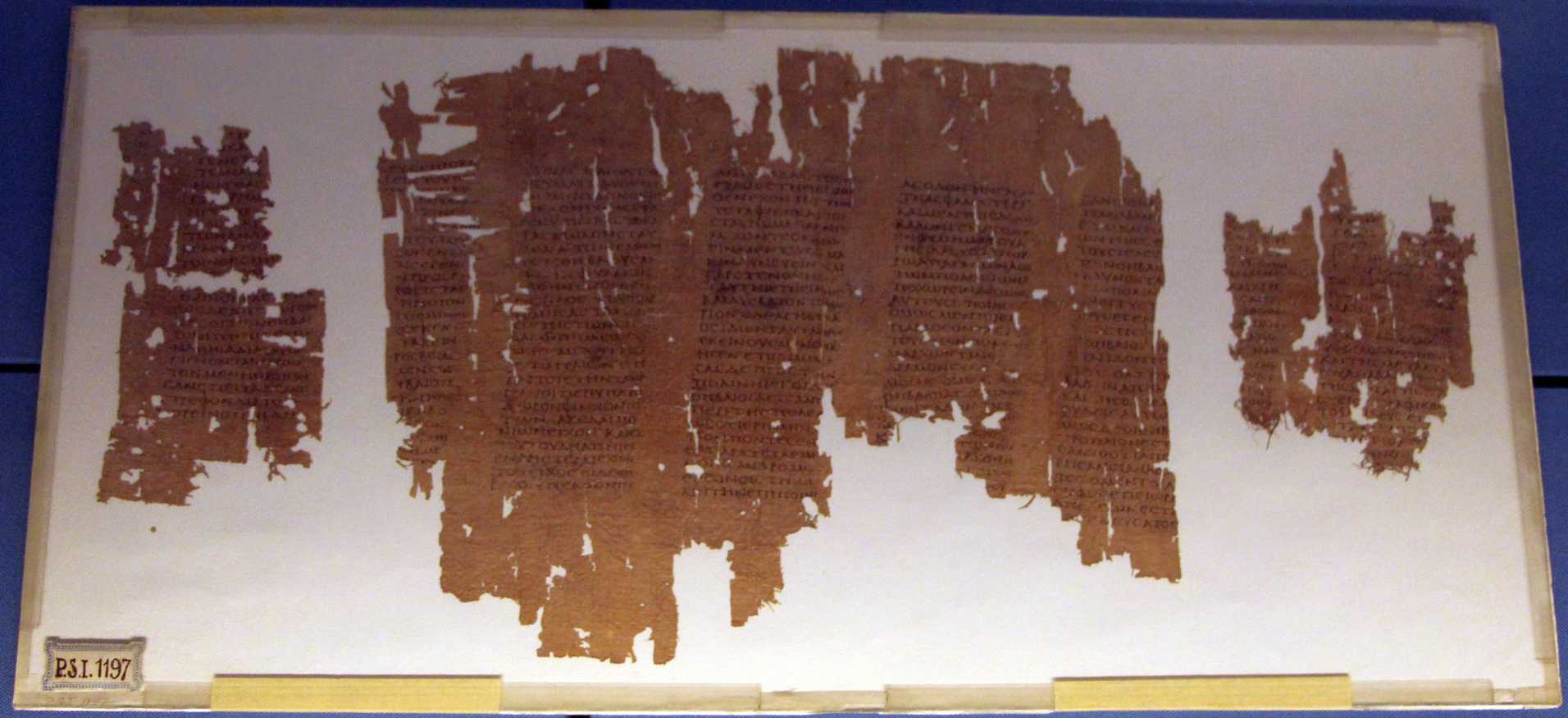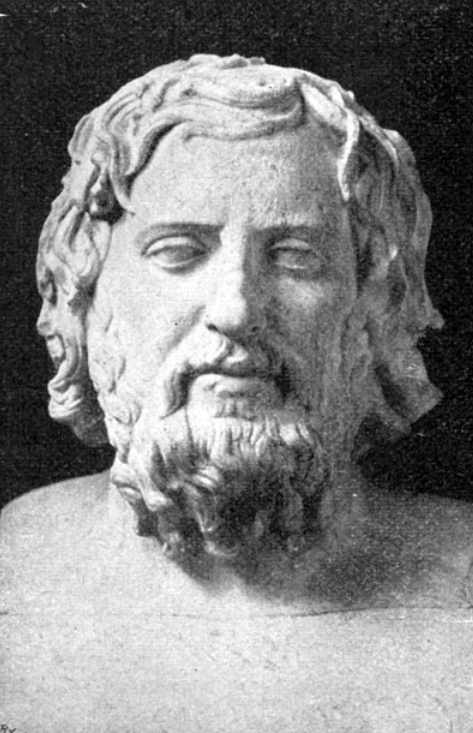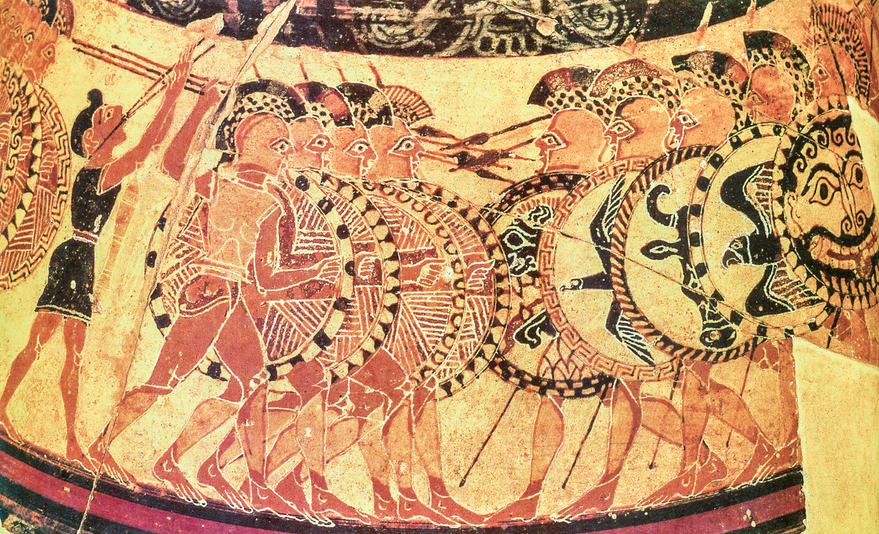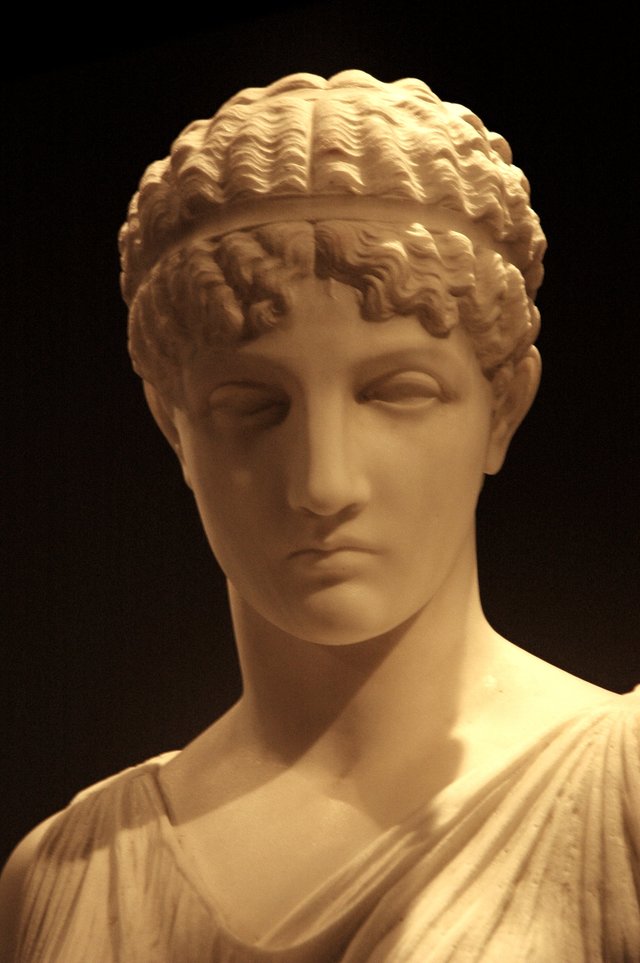Editor’s note: The following is extracted from History, by Bernadotte Perrin (published 1912).
The interrupted task of Thucydides was completed by Xenophon, who tried to follow his methods and continue his spirit, but succeeded with only faint success. The modern historian has nothing to learn from Xenophon that his master does not better teach, except, perhaps, in the matter of biography. The words of Grote are familiar: “It is at this point that we have to part company with the historian Thucydides…. The full extent of this irreparable loss can hardly be conceived…. To pass from Thucydides to the Hellenica of Xenophon, is a descent truly mournful; and yet, when we look at Grecian history as a whole, we have great reason to rejoice that even so inferior a work as the latter has reached us.” In Xenophon’s completion of the history of the Peloponnesian War we welcome the method and manner of Thucydides, but we miss his discerning power, and, above all, his detachment. For Xenophon had only a mediocre talent, and besides was a partisan; a partisan, too, not of Athens, his native city, but of Sparta. And in his continuation of Greek history down to 362, we can never forgive him the distortion of view which elevates so unduly the personality of Agesilaus of Sparta, and depreciates so unduly, almost to the point of utter neglect, that of the Theban Epaminondas, whom Cicero called “princeps Graecorum.”[1] It is not too harsh a judgement to call Xenophon in history, as in philosophy, an agreeable dilettante.

Of his contemporary, Cratippus, whom Plutarch clearly regards as the leading historian of Greece for the period following the point at which Thucydides’s work breaks off, we know too little to pass any broad judgment upon him, even allowing, with some English scholars, that a considerable historical fragment discovered at Oxyrhynchus in Egypt by Messrs. Grenfell and Hunt should be attributed to him and not to Theopompus. And what little we can learn about Philistus of Syracuse, the historian of Sicily and the two tyrants Dionysius, leads us to think that Cicero was apt in styling him a miniature Thucydides.

But now, with the disappearance of Epaminondas from the scene of his triumphs, with the rise of the Macedonian power to political supremacy in Greece, and with the remarkable intellectual domination of all Hellas by the orator Isocrates, a new political idea and a new literary form became current, and forced into new lines the art of writing history. The new political idea was that of the unity of the Greeks against Persia, and the new literary form was rhetorical prose. Historical writing became more widely national, and rhetorical devices ministered to the pleasure of hearers and readers as epic poetry or epic prose narrative had once done. When, therefore, Ephorus of Cyme wrote his Hellenica, or History of Greece, though he had a large national theme, corresponding well to the imperial theme of Thucydides, he did not continue the line of historical writers who, like Hellanicus and Thucydides, were devoted to fact more than to form, and wrote to instruct rather than to please – as Hesiod the poet had done, in protest against Homer – but rather the line which culminated in Herodotus, and affected the Homeric manner and charm. The manner and charm of Ephorus were new, but they were his main objects in writing. “The form was of more importance than the substance, and freely shaped the substance to its needs.” And, in true Homeric fashion, he did not hesitate to cater to the reigning taste by the embellishment or even the invention of detail. He sacrificed truth to rhetorical effect. And yet he achieved an immense popularity, and established what has been called “the Vulgate of Greek history.” One might be tempted to call his contemporary and rival, Theopompus of Chios, the Thucydides of this rhetorical period, as Ephorus was its Herodotus; but in Theopompus also, in spite of his erudition and industrious quest of the truth, especially in his huge chronicle of contemporary history, the Philippica, the rhetorical element triumphs over the didactic, and besides, a certain bigotry and bitterness of partisanship, together with a pessimistic skepticism and an undiscriminating censoriousness, combine to make him rather a soured and crabbed Herodotus, if that is conceivable, than a later Thucydides. From a historiography which is the slave of formal rhetoric, the modern historian has nothing to learn except how not to write history, and his regret that Ephorus and Theopompus are known principally in the citations of later compilers is tempered by the remembrance of the kind fortune which has brought Herodotus, Thucydides, and Xenophon down to him in their entirety.
_____________________________
[1] “First (or foremost) among the Greeks.”
(Continue to next chapter)









